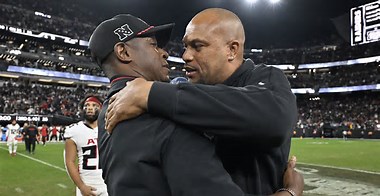The National Football League (NFL) recently found itself at the center of a controversy concerning its stance on diversity, equity, and inclusion (DEI) efforts. The decision to remove the “End Racism” messaging from the end zones during the Super Bowl has sparked debate and criticism from fans, players, and social justice advocates alike. This move has raised questions about the NFL’s commitment to fighting racism and promoting inclusivity within the sport and its broader community.

For several years, the NFL has been vocal about its commitment to social justice issues, especially in the wake of national protests and movements demanding racial equality. The “End Racism” message, prominently displayed during games, was seen as a powerful statement acknowledging the league’s awareness and support for the cause. However, the decision to omit this message during one of the most-watched sporting events in the world has led many to question whether the league is stepping back from its DEI initiatives.
Critics argue that the removal of the message sends the wrong signal at a time when racial tensions and the fight for equality remain pressing issues. They believe that high-profile platforms like the Super Bowl are crucial opportunities for influential organizations like the NFL to demonstrate their commitment to social change. By eliminating such visible support, the league risks undermining its previous efforts and alienating those who look to it for leadership in promoting racial equality.
On the other hand, some defend the NFL’s decision, suggesting that the league might be seeking to position its DEI efforts in a more comprehensive and nuanced manner. This perspective posits that the removal of the message could be part of a broader strategy to integrate DEI values into the league’s culture and operations more deeply, rather than relying solely on symbolic gestures.
Despite these differing viewpoints, the incident underscores the challenges that organizations face in consistently aligning their public messaging with their core values. In an era where consumers and fans increasingly expect transparency and accountability, it is essential for the NFL to clearly communicate its intentions and strategies regarding DEI initiatives.
Moving forward, the NFL has the opportunity to reaffirm its commitment to ending racism and promoting inclusivity by engaging with stakeholders, including players, fans, and community leaders, to develop meaningful and actionable plans. Whether through continued advocacy, partnerships with social justice organizations, or tangible policy changes within the league, the NFL must demonstrate that its dedication to DEI goes beyond end zone messages.
In conclusion, while the removal of the “End Racism” message from the Super Bowl end zones has sparked controversy, it also provides a chance for the NFL to reevaluate and strengthen its approach to diversity and inclusion. By doing so, the league can play a significant role in fostering a more equitable and inclusive society, both within the world of sports and beyond.
